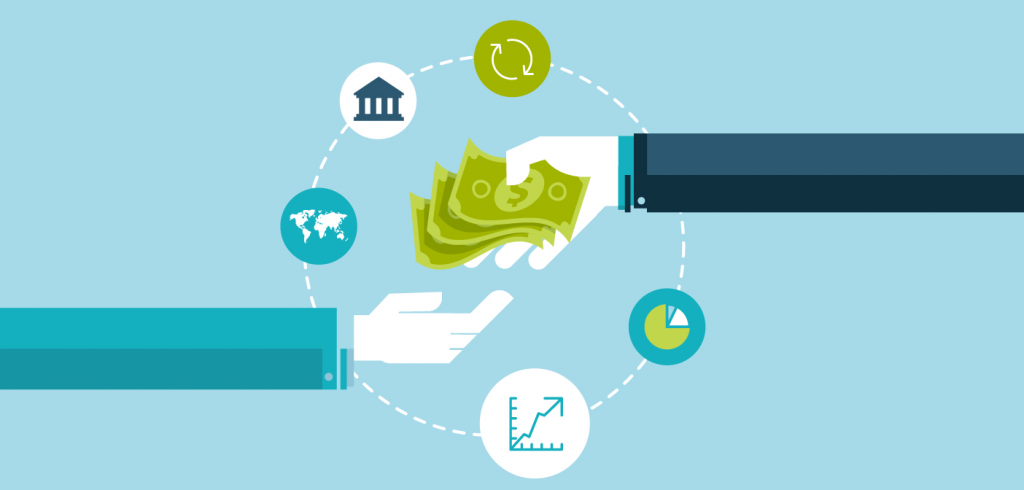New year gives us an opportunity to reflect on the previous year and create new objectives for the next year. If you’re thinking about new physical and mental health goals, think about making financial changes as well. Everyone knows how hard it is to find an effective new year’s resolution that will drastically shift one’s life around. Here are 9 financial tips that can help you improve your financial fitness in the new year and perhaps encourage you to stick to them.
1. Start Budgeting
The most important thing you can do to be financially successful, as well as our most essential financial tip, is to budget all your expenses. Be sure to list out all the things you’re planning to spend on and always prioritize basic expenses. People who don’t use their money wisely will deal with many financial problems in life, even when they’re earning big bucks. Making a budget and sticking to it are the two most crucial aspects of budgeting. One of the most simple methods that we recommend is couponing. By using discount codes on your order, you will drastically save a huge amount of money for each purchase. And Tenere is where you can enjoy thousands of working coupons and promotions.
You can also benefit from using a credit card. Many of the finest cards provide lucrative rewards and statement credits that may be used to offset expenditures with cashback, points, or miles, like the American Express Gold Card for example.
2. Begin Investing and Review Your Investment
The second new year’s financial tip we want to point out is investing as it can help you grow your wealth substantially. Consider your financial status and the level of risk you’re prepared to face before making an investment. Stocks are regarded to be riskier than bonds, but they also provide bigger returns. Don’t restrict yourself to merely making tax-advantaged retirement contributions when it comes to investing.
If you have a financial advisor, you’re probably not getting the best returns possible. The majority of advisors will invest your money in funds that charge heavy and unnecessary fees. You must always be informed of where your money is going in order to avoid losing it without knowing the cause.
3. Save on Medical Bills
Healthcare costs are continuing to grow. That is why it is beneficial to discover how to reduce your out-of-pocket healthcare expenses. The best way is to learn how to save money while still getting the treatment you need. Start by reviewing the details of your plan to see what services are offered.
Choosing providers carefully, such as selecting in-network care providers and requesting discounts, can help you save money on medical expenditures. In addition, urgent care facilities are frequently less expensive than visiting a hospital’s emergency department.
4. Streamline, Streamline, Streamline

Making excellent financial decisions is a lot easier when you don’t have to worry about them too much! Make sure your financial data is well-organized and accessible, and that you’re taking as many chances as possible to automate savings and debt consolidation.
When you automate and divide your savings, you’re establishing a unique mechanism to save money on a regular basis through automated bank transfers to your savings accounts. Using long-term savings accounts, such as a 401k or IRA, can help you split your savings into different parts and reduce the likelihood of you withdrawing your savings.
5. Create a Spending Plan
A spending plan is simply a strategy for meeting expenditures and spending money the way you desire. A smart spending plan might help you avoid “spending leaks,” that is, spending money without thinking about it. It can assist you in ensuring that you have enough money to pay your payments on time, even if your bills and income fluctuate month to month.
To get the most of your money, we propose the popular 50/30/20 budget. In it, you spend around half of your after-tax income on essentials, no more than 30% on desires, and at least 20% on savings and debt reduction. By following this plan, you can effectively reduce your entire spending on unnecessary things.
6. Establish an Emergency Fund
Unexpected emergencies may strike anyone at any time. Your budget might fall apart at any time if a problem arises if you don’t plan beforehand. Establishing an emergency fund is critical, so do it asap if you haven’t already. This will safeguard you in the event of an unforeseen emergency without costing you a fortune.
Your emergency fund should cover at least two to three months of costs. This fund may take some time to set up, but the financial independence you’ll receive is well worth the wait.
7. Improve Your Credit Score

Payment history, quantities outstanding, duration of credit history, and other criteria all contribute to your credit score. While there is no quick remedy for a poor credit score in many circumstances, there are things you can do right now to start raising your score. Some of the most popular methods to improve your credit score are reviewing your credit report, setting up a payment reminder, contacting your creditors, applying for new credit sparingly, and diversifying your account.
8. Cook More Meals at Home
Cut back on restaurant meals to put more money in your pocket. Cooking from scratch allows you to save even more money. Look for recipes online or ask friends and family for tried-and-true meals. Calculate your savings after a trial and consider using the excess funds to pay off debt or develop an emergency reserve. Meal subscription services, which allow you to choose fresh dishes each week and have the supplies delivered to your door, can make eating at home convenient and budget-friendly.
9. Update Your Beneficiaries
It’s a good idea to check through your beneficiary designations again shortly after you’ve gone through a life-changing event. Also, double-check your beneficiary designations on your retirement and bank accounts, as well as your insurance policies and other financial assets.
It’s crucial to name a beneficiary on your accounts so that your assets flow to the people you pick. Beneficiary designations take precedence over wills, so be sure your will and any accounts or policies, such as life insurance, are in sync.
Conclusion
While many of us make resolutions to live a healthier lifestyle, we sometimes fail to maintain our financial fitness. The tips above are what we recommend you follow as part of building your financial plan. It should be the cornerstone for those who want to own, plan for, and then take the steps necessary to save, invest, and achieve their financial objectives.








